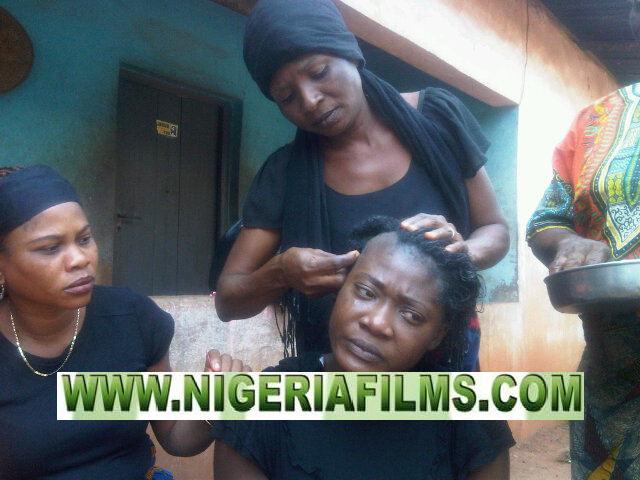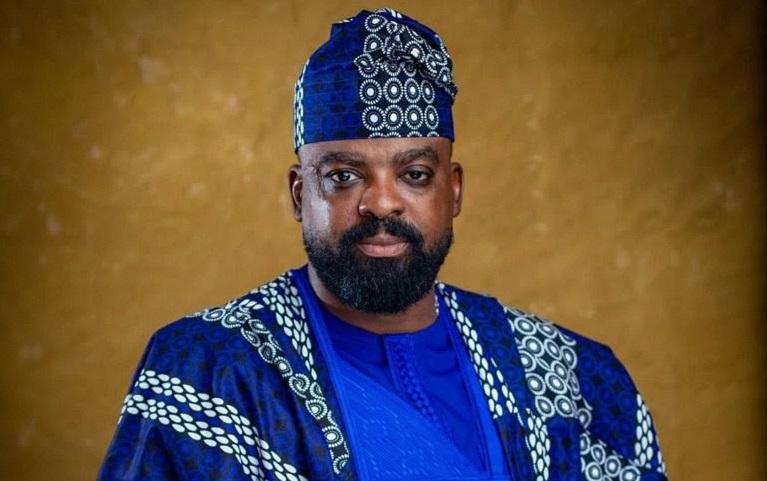The Nigerian motion picture industry is poised to witness an unprecedented growth during this year, and perhaps consolidate on the achievements recorded so far in the industry in the previous years, only if the practitioners would begin to close ranks and learn to explore the possibilities that abounds in the industry.
There is also the need for the practitioners to pay attention to business aspect of the movie production, which before now, have been relegated to the background.
President of the Association of Nollywood Core Producers(ANCOP), Mr. Alex Elengho while articulating this new vision during an encounter with HVP recently submitted that for Nollywood to move forward in this new season, emphasis should be placed more on training and retraining of the practitioners, adding that “it remains the only way we can sustain the bar that has been raised in the industry.”
However, reviewing how the industry fared in the last one year, ANCOP boss acknowledged the fact that one of the gains recorded in the industry during the expired year was the revival of the cinema culture as well as te raising of the bar.
“For me, I think there was a major leap in the industry in terms of deepening the brand called Nollywood. Apart from gaining international recognition, our films have come of standard. Before now, the kind of films that were churned out of the industry were criticised by the people. But last year recorded a paradigm shift, in terms of quality of the films that were produced from Nollywood.” he remarked.
Continuing, he added “what was responsible for this welcome development is because we have realised that it is high time we started doing films the way it should be done.
According to ANCOP boss, “before now, the strategy had always been; shoot your films within two or three weeks, do your post-production in another week and thereafter, you film is ready to hit the market on VHF and VCD. These were the days of boom of Nollywood, and that practice absolutely killed the big screen(cinema culture).”
“Nobody was shooting for the cinema as the producers were only interested in shooting their films and getting them released into the market without paying any attention to the technical aspect of the production.
The film makers were more driven by the commercial aspect of the showbiz. But last year proved to be different after the lull that was recorded in the industry between 2008 and 2009.
Then, production dropped drastically as activities were paralysed occasioned by the sub-standard quality of the films. “In 2010, the bar was raised, and films like “Figurine”, “Ije”, ‘Through the Glass’, ‘Home in Exile’, “Anchor Baby’, “Cajola” and host of others acted as catalyst to this paradigm shift. Some people had argued that some of these films were 70 per cent done by tasted hands from Hollywood. Be that as it may, the most important thing here is that these films were directed and produced by Nigerians with technical supports by Hollywood practitioners.”
“For us, it’s a welcome development because it has helped to raise the bar for Nollywood practitioners. No big producer or director in Nollywood today, after witnessing what these films had done in the cinemas, would want to shoot a film that is below the standard set by these works. So, it’s a major challenge to all of us and we cannot afford to do anything less comparable to these films. The films has helped to deepen the level of professionalism that is lacking in Nollywood in terms of sound quality, picture quality and storyline. All these happened in 2010, and it will even reflect more in this year.”Elengho stated.
He said, given the development, most producers who have not produced films for a very long time now, have all embraced the act again, having returned to location, while acquiring sophisticated equipment to march the trend.
Also, he charged Nollywood producer to begin to pay attention to technical aspect of movie making, rather than the commercial aspect of it.
“Looking forward now, is for us to maintain that standard that have been set by these producers who have had exposure in the international scene and decided to bring their experiences to bear in the industry. That’s the agenda I want to set for my colleagues We should be forward looking and never to go back to those dark days of Nollywood.”
Elengho however advocated the need for film makers to avail themselves of the opportunity of being trained and retrained again.
“I think we should pay more attention to training and retraining programmes. Our cinematographers should undergo a lot of training, so also our directors, make-up artistes, actors, and others, if we must consolidate on the achievements recorded last year.



















